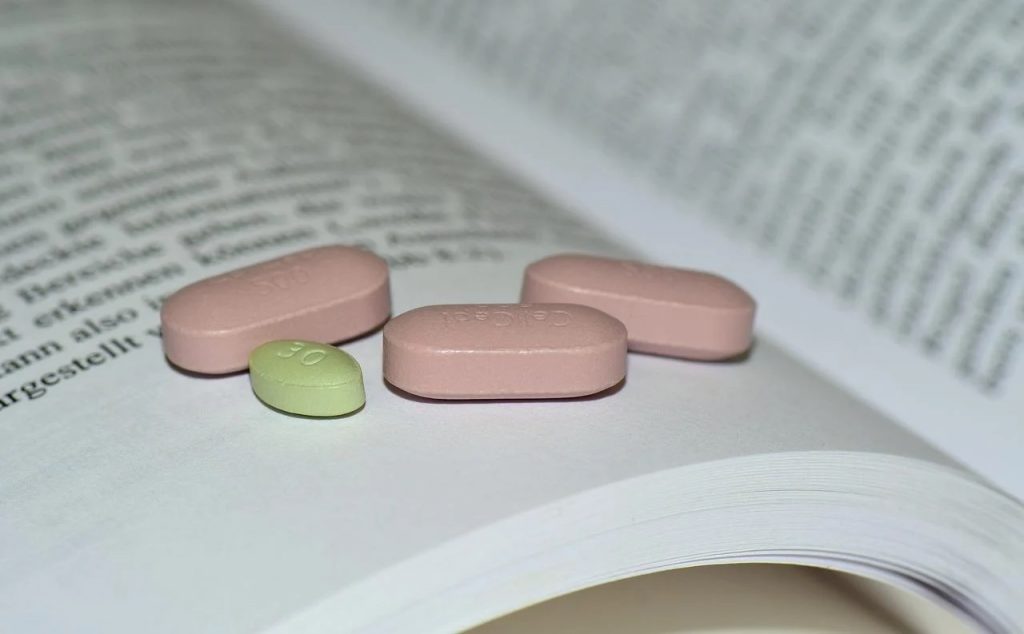
“Study drug’’ is a colloquial umbrella term for a range of central nervous system stimulants, including methylphenidates like Ritalin and amphetamines like Adderall, Vyvanse and Dexedrine. As prescription stimulants, the drugs help treat individuals diagnosed with conditions including narcolepsy, binge eating disorder and, primarily, attention-deficit/hyperactivity disorder (ADHD). However, unprescribed individuals, particularly college students, may use drugs like Adderall to enhance their ability to complete schoolwork. The stimulants are also used for athletic performance as well as recreationally for their euphoric properties.
A fall 2021 SUNY and New York State Office of Addiction Services and Supports survey found 2.2 percent of BU undergraduate students surveyed used nonmedical amphetamines in the last 30 days. The drugs are most commonly used by college-aged students, with a pre-COVID-19 Johns Hopkins University study finding that 60 percent of unprescribed Adderall users are within the 18 to 25 age range.
After over a year of virtual instruction at BU, some believe that cognitive-enhancing drug usage might rise, with some faculty witnessing a decline in student performance as in-person instruction returned. One such person is Lina Begdache, an assistant professor of health and wellness studies and mentor of the Binghamton Student Managed Adderall Research Team (B-SMART), a group that researches Adderall use on college campuses.
“That is the concern, faculty are seeing a decline in students’ performance and quality of work,” Begdache wrote in an email. “We are also seeing changes in students’ behaviors and attitudes. This can translate into students feeling the challenges of in-person education, which may prompt more people to resort to easy fixes.”
While the stimulants can increase alertness and cognitive function, they also contain many side effects, including paranoia and anxiety, mood swings, insomnia, irregular heartbeat and if overdosed, heart attack or death. The stimulants also reduce the sedating effects of alcohol when mixed with alcoholic beverages, leading to an increased risk of alcohol poisoning. Many of these drugs are classified as Schedule 2 drugs by the U.S. Drug Enforcement Administration (DEA), with a high risk of leading to a substance use disorder.
Despite known side effects, some students are resistant to quitting. One anonymous student said they use unprescribed Adderall to study and had also used the drug once at a party. The student said they understood the risks but believed the drug helps them be more productive and happy.
“I do not take them regularly because I understand the risk of abusing it easily and keeps my tolerance low,” the student said. “But it is super convenient, since I just retain more information for my test and feel more efficient with my time.”
Begdache warned students that these “easy fixes” have been linked to poor dieting, reduced development of the brain’s prefrontal cortex and worse grades, according to results from B-SMART and other researchers.
“It is hard sometimes to believe it as the short-term reward may be a higher grade on a test, but these drugs only promote information retention in the short-term memory; therefore, they do not promote learning,” Begdache wrote. “This is an issue as students start taking upper-level classes that are based on previously learned information. These students start struggling, which prompts them to rely further on these medications to improve their grades. We found a close relationship between taking non-medicinal Adderall and low GPA and low GPA and Adderall abuse. It becomes a cyclic phenomenon.”
One student, who wished to remain anonymous, said they have taken both unprescribed Adderall and Vyvanse solely for academic purposes. The student said their grades and mood improve while using the stimulants, if they remain focused on schoolwork.
“When I take it I feel all my senses are enhanced and all my thoughts are organized,” the student said. “I feel so focused and it does improve my study habits and actually correlates with better grades and Adderall. It also makes me reach a state of happiness for a little while which I feel and am nicer.”
Another student, who also wished to remain anonymous, said they take Adderall, Vyvanse and Dexedrine to study when faced with multiple exams on the same day or during finals. While the student has been diagnosed with ADHD, they said they do not have a prescription and use the drug to help deal with symptoms.
“I feel like I can study for way longer when I take it,” the student said. “Essentially, it eliminates brain fog and procrastination. However, if I don’t also take it before the test I find that I don’t perform as well as when I was studying off of it.”
Linda Reynolds, the college prevention coordinator of BU’s Alcohol, Tobacco and Other Drugs program, told students who are struggling with stimulant misuse to contact her or Angelica Dellapenna, a senior counselor at the University Counseling Center who specializes in substance misuse.
Like Begdache, Reynolds wrote that unprescribed Adderall usage does not improve ability to learn or understand material and is more likely to promote negative side effects. Instead, Reynolds provided healthy alternatives.
“If students truly want to improve their concentration and relieve stress, they should go back to the basics: get sufficient and consistent sleep, engage in some type of physical activity and eat a well-rounded diet,” Reynolds wrote in an email.


